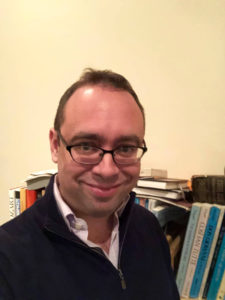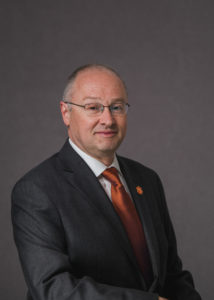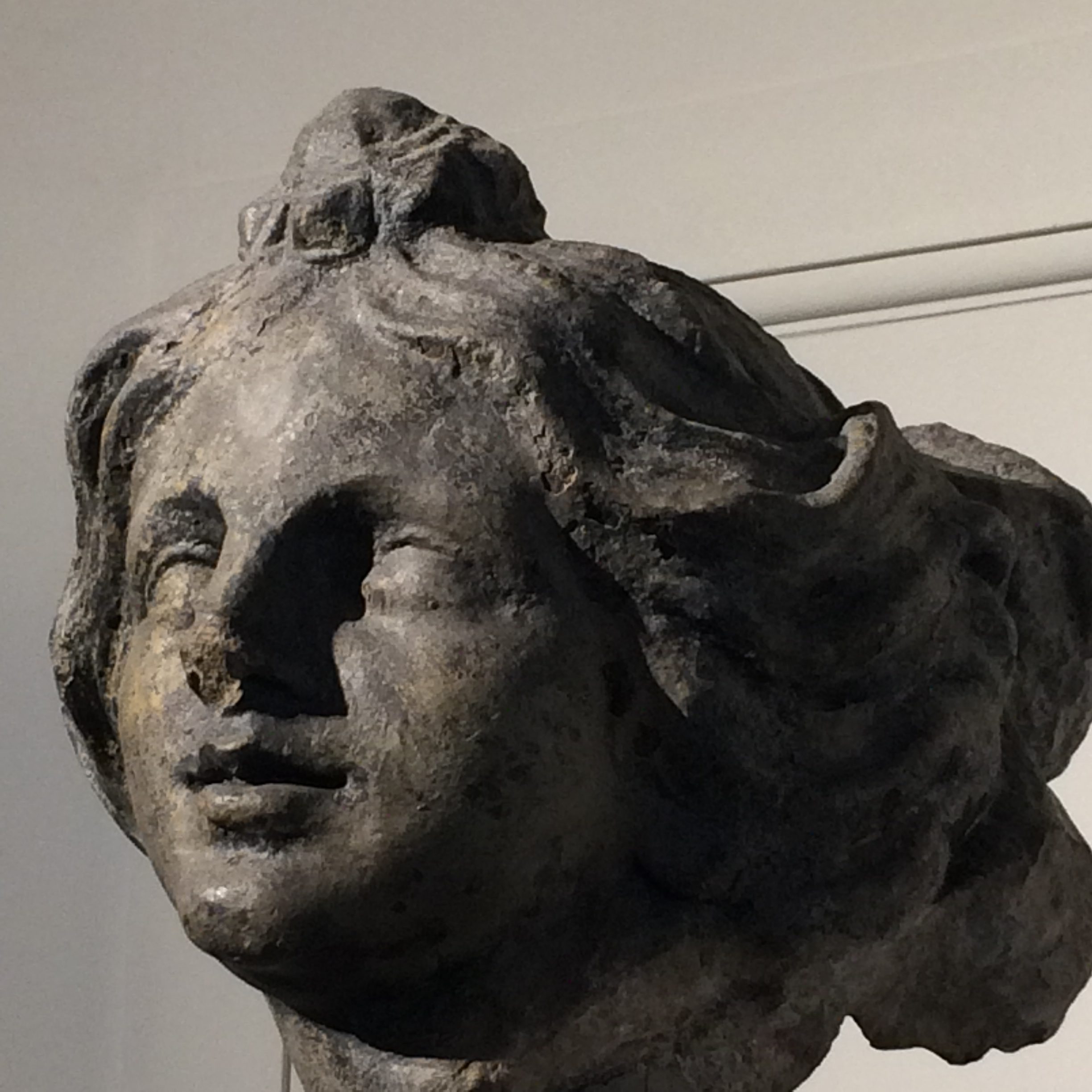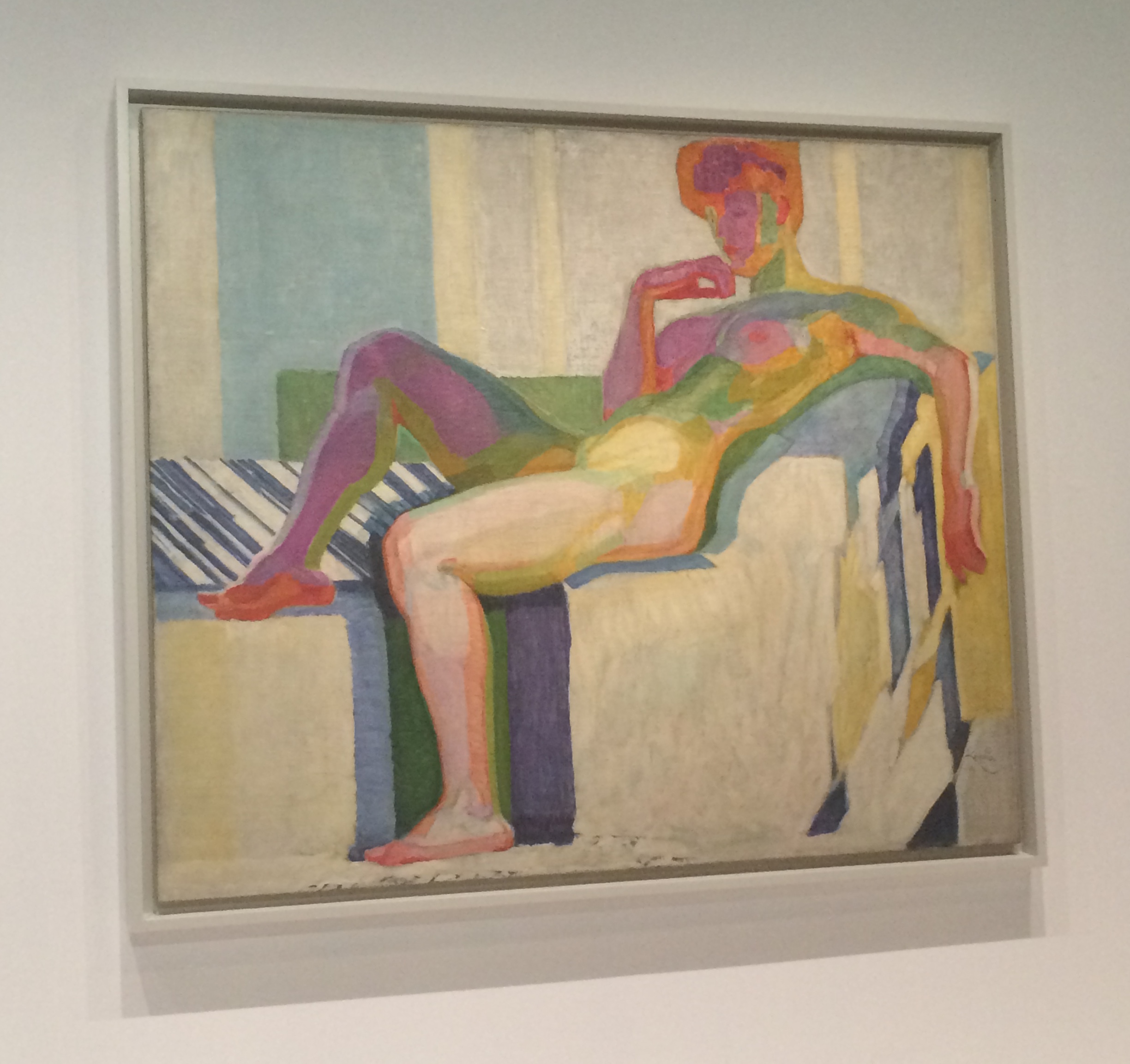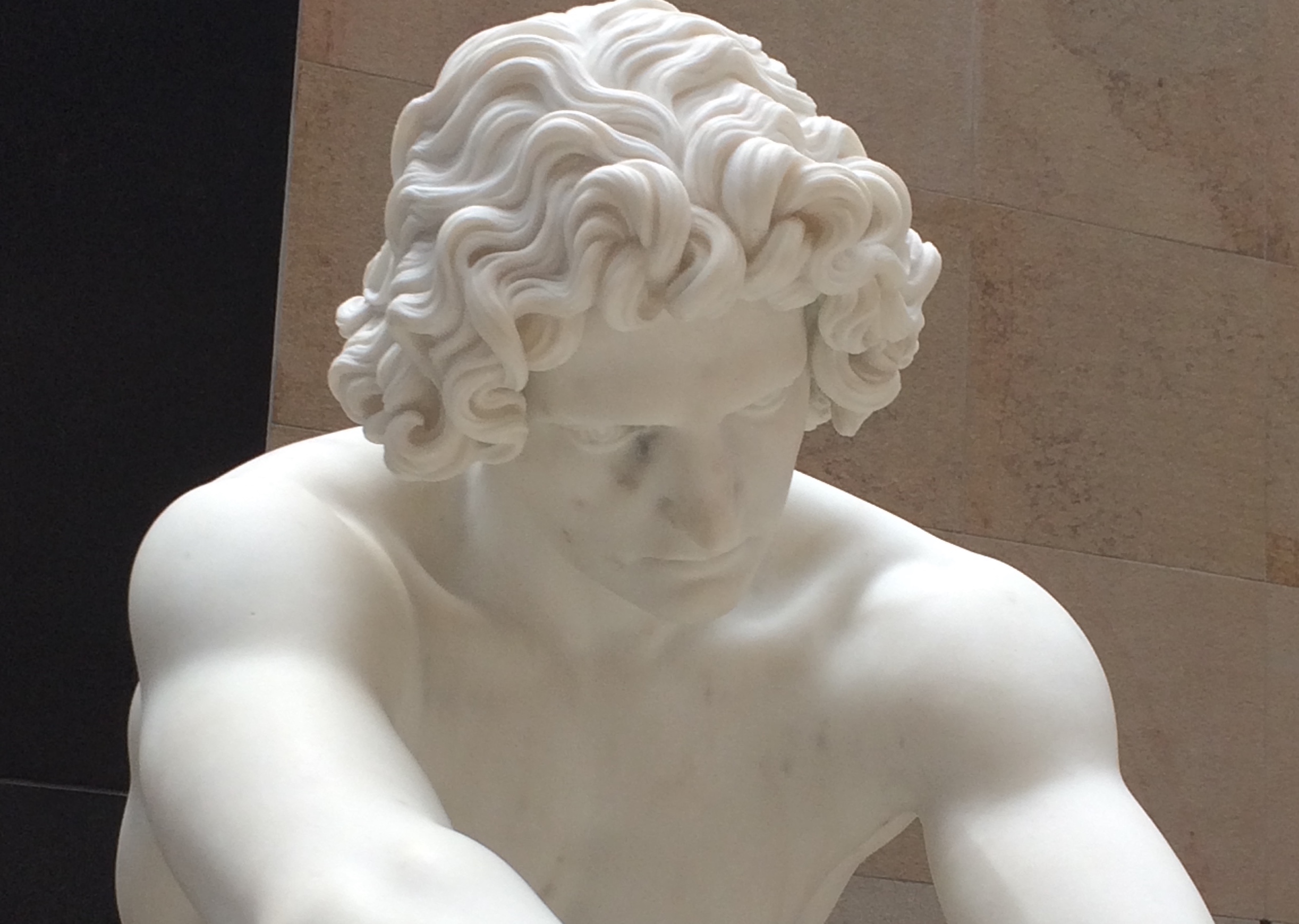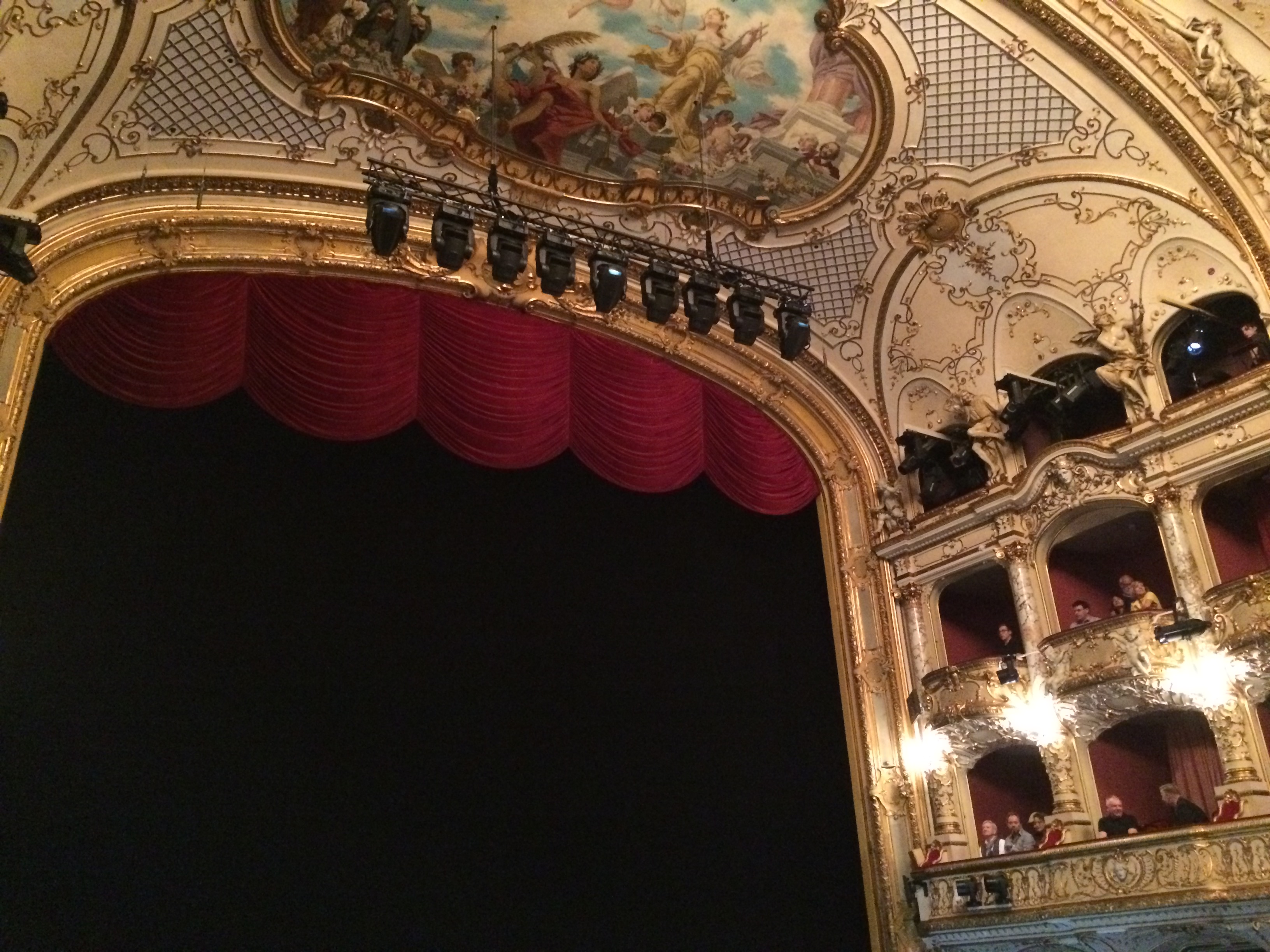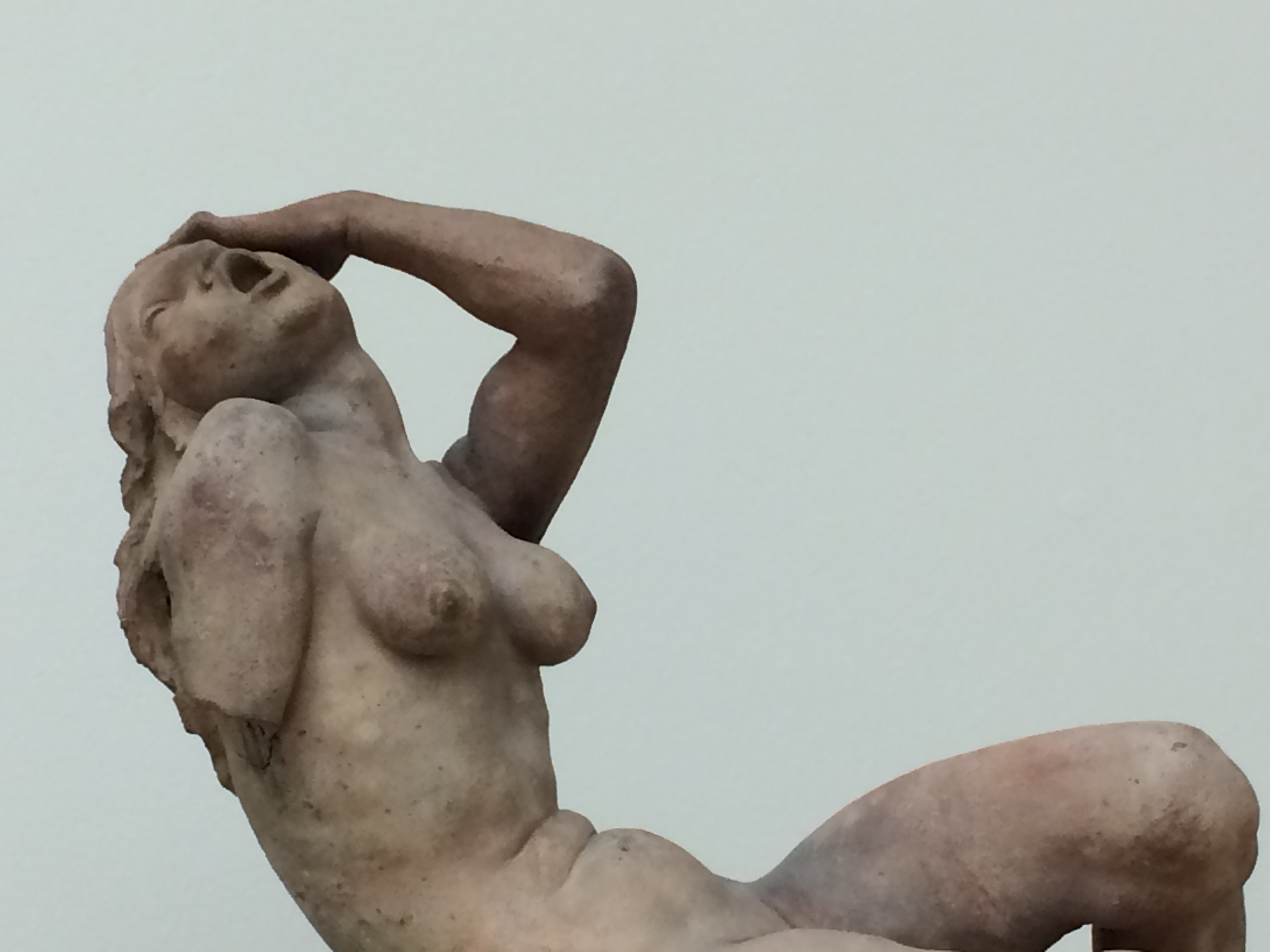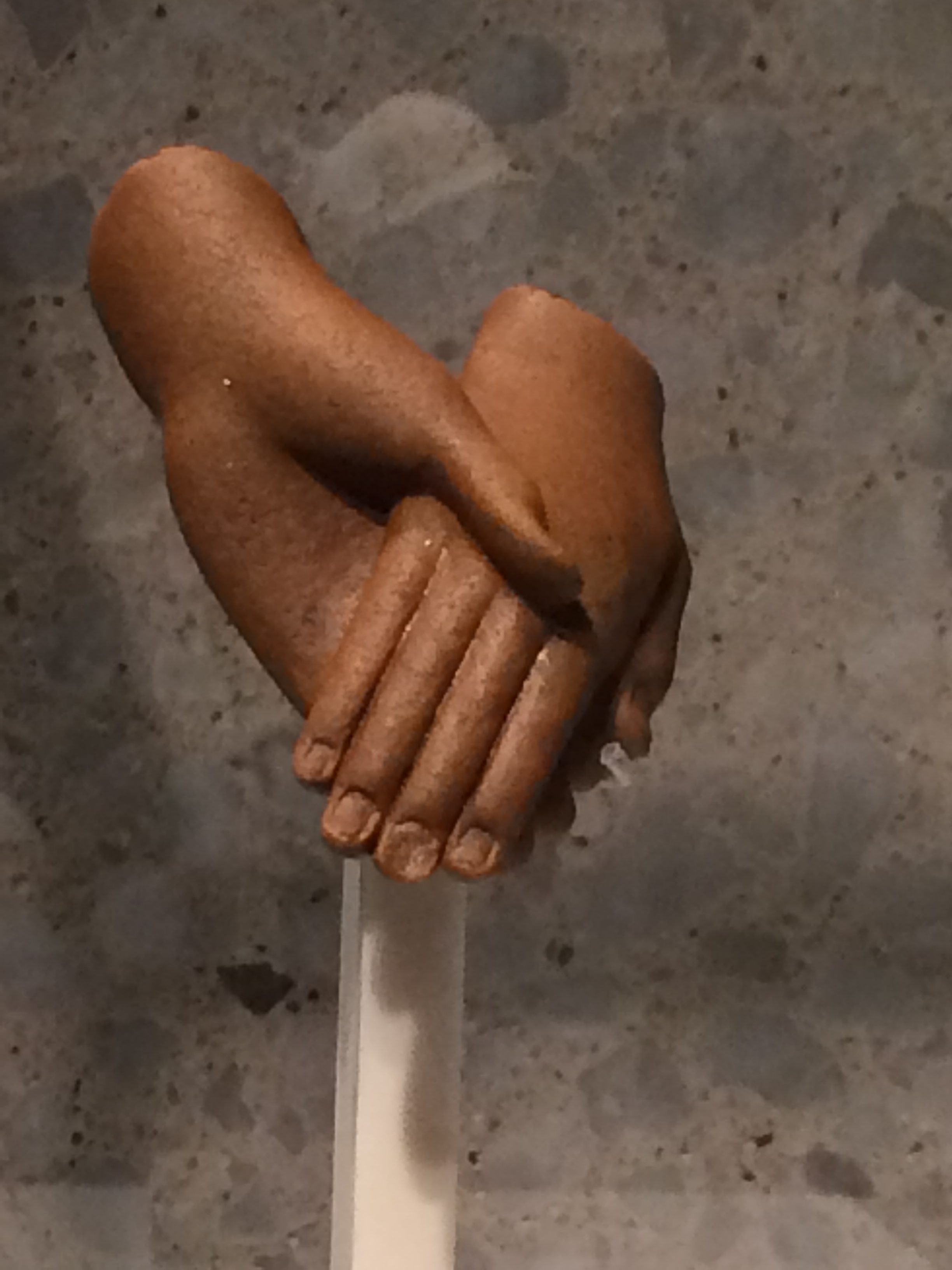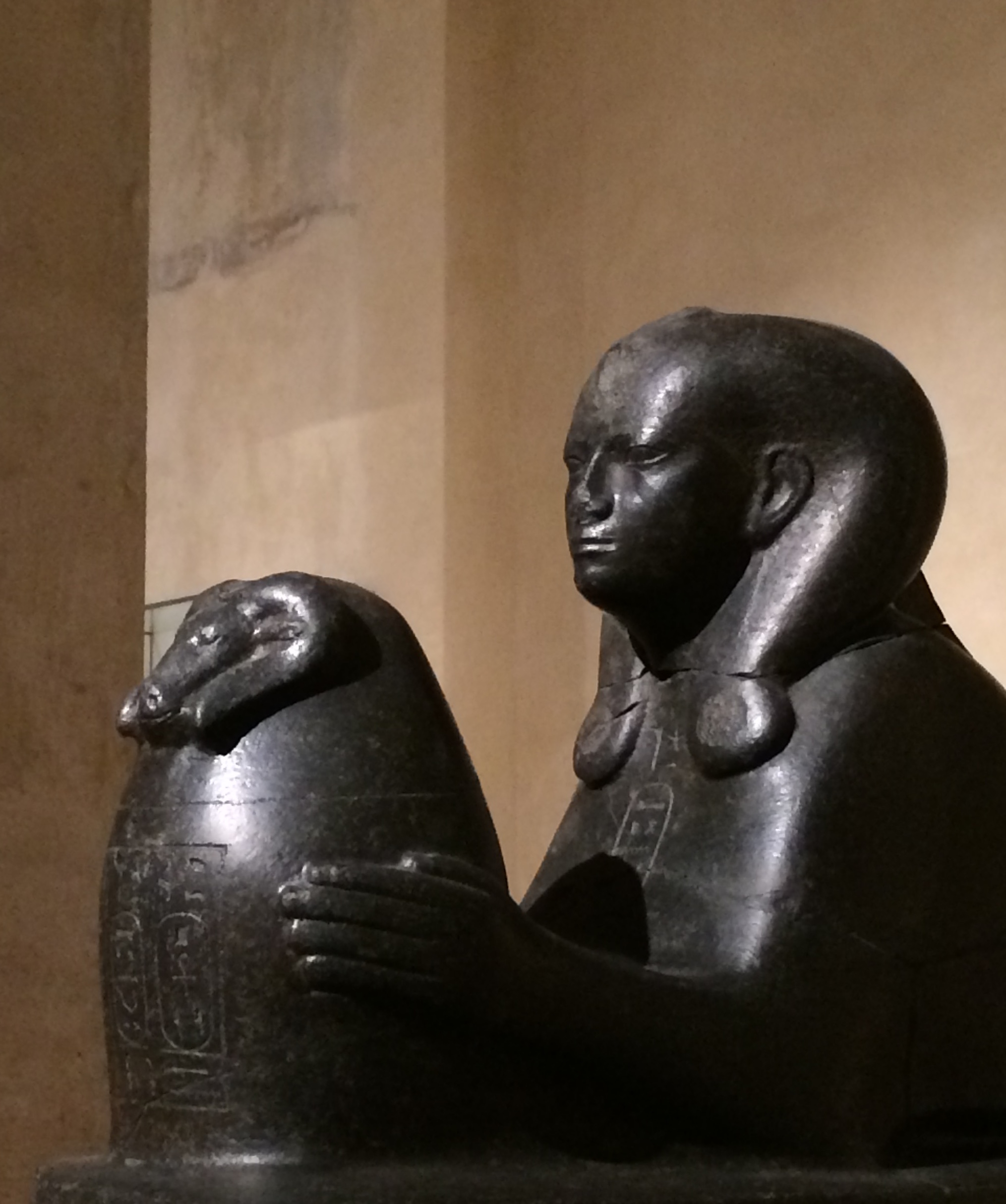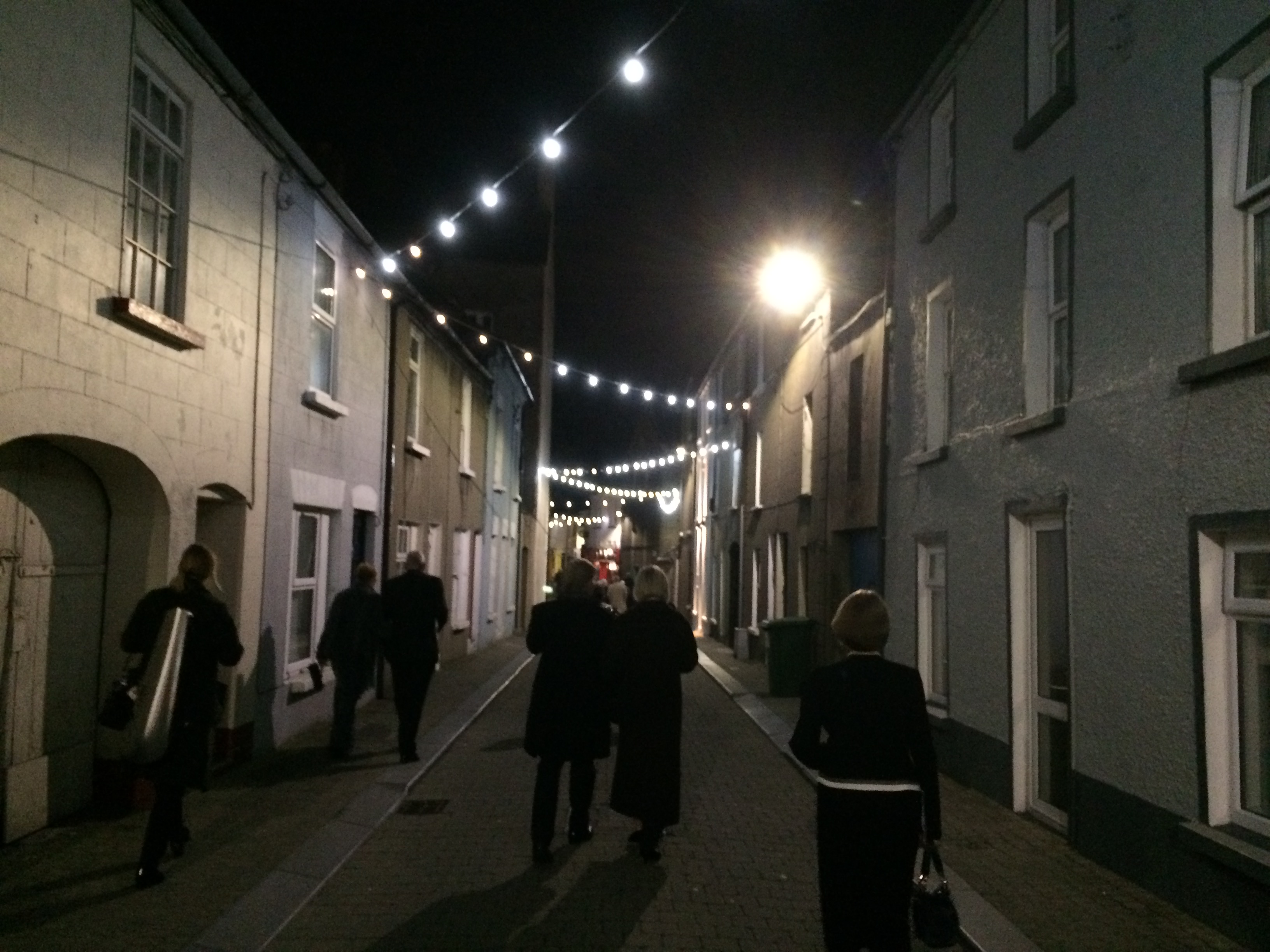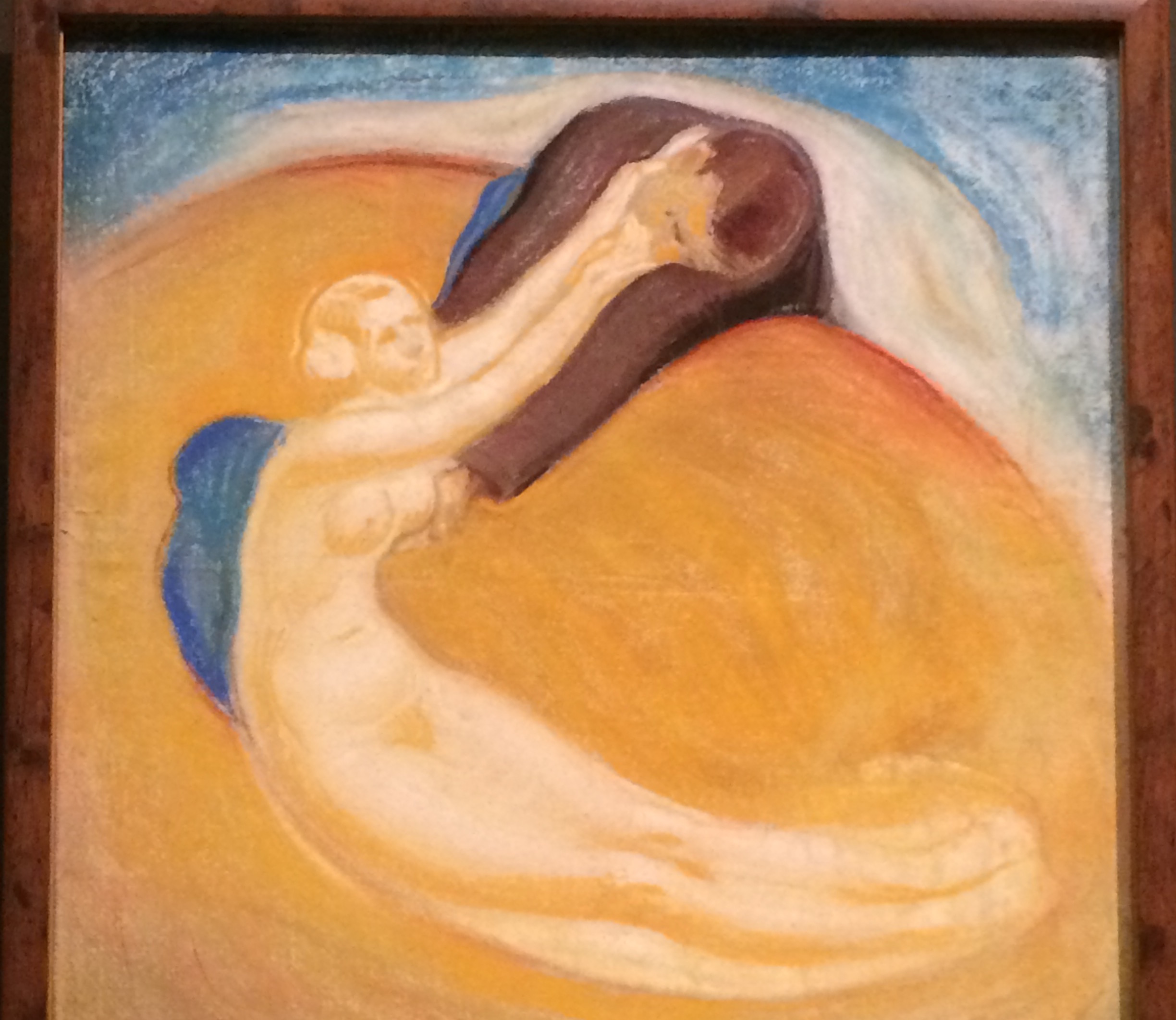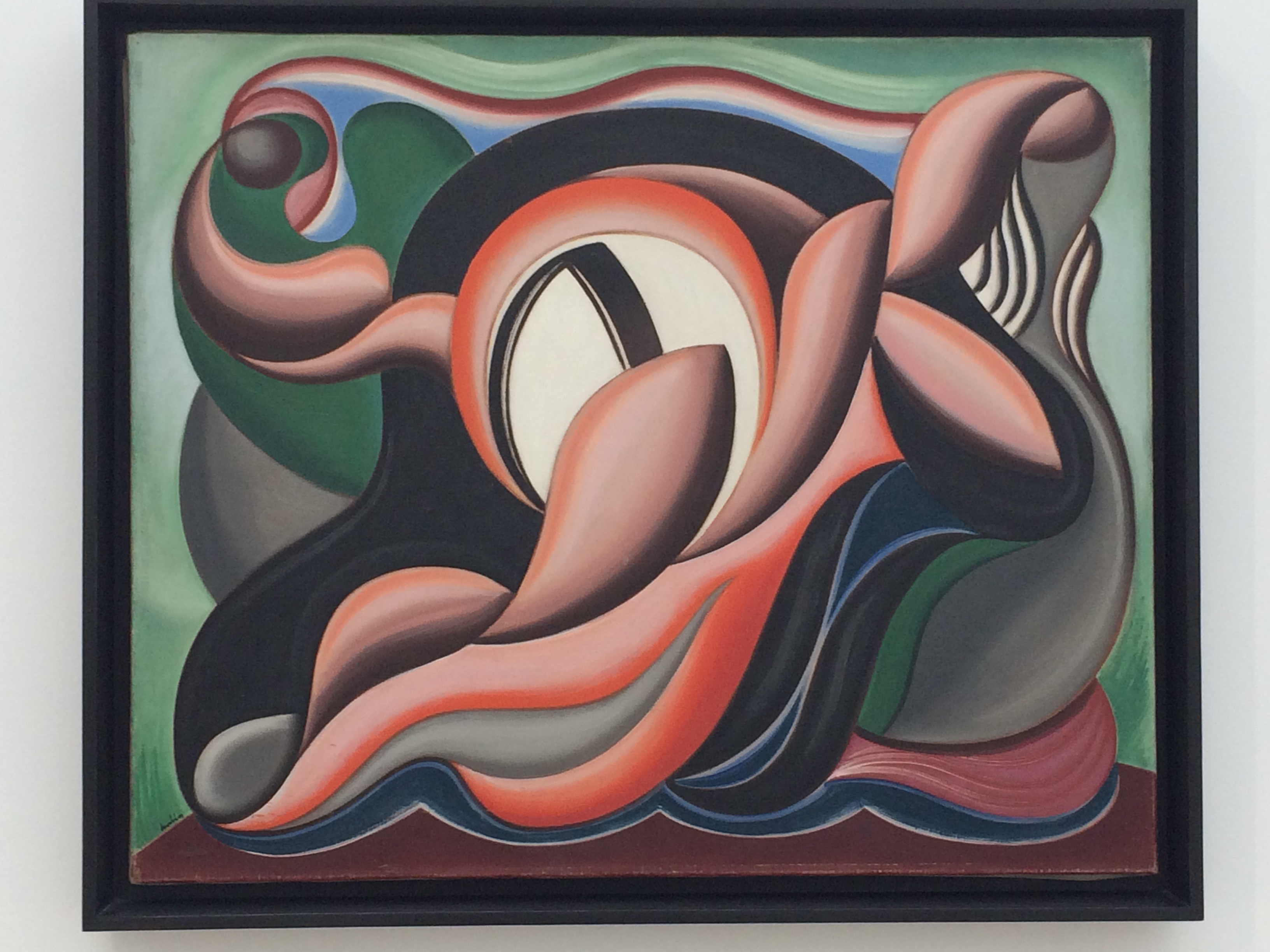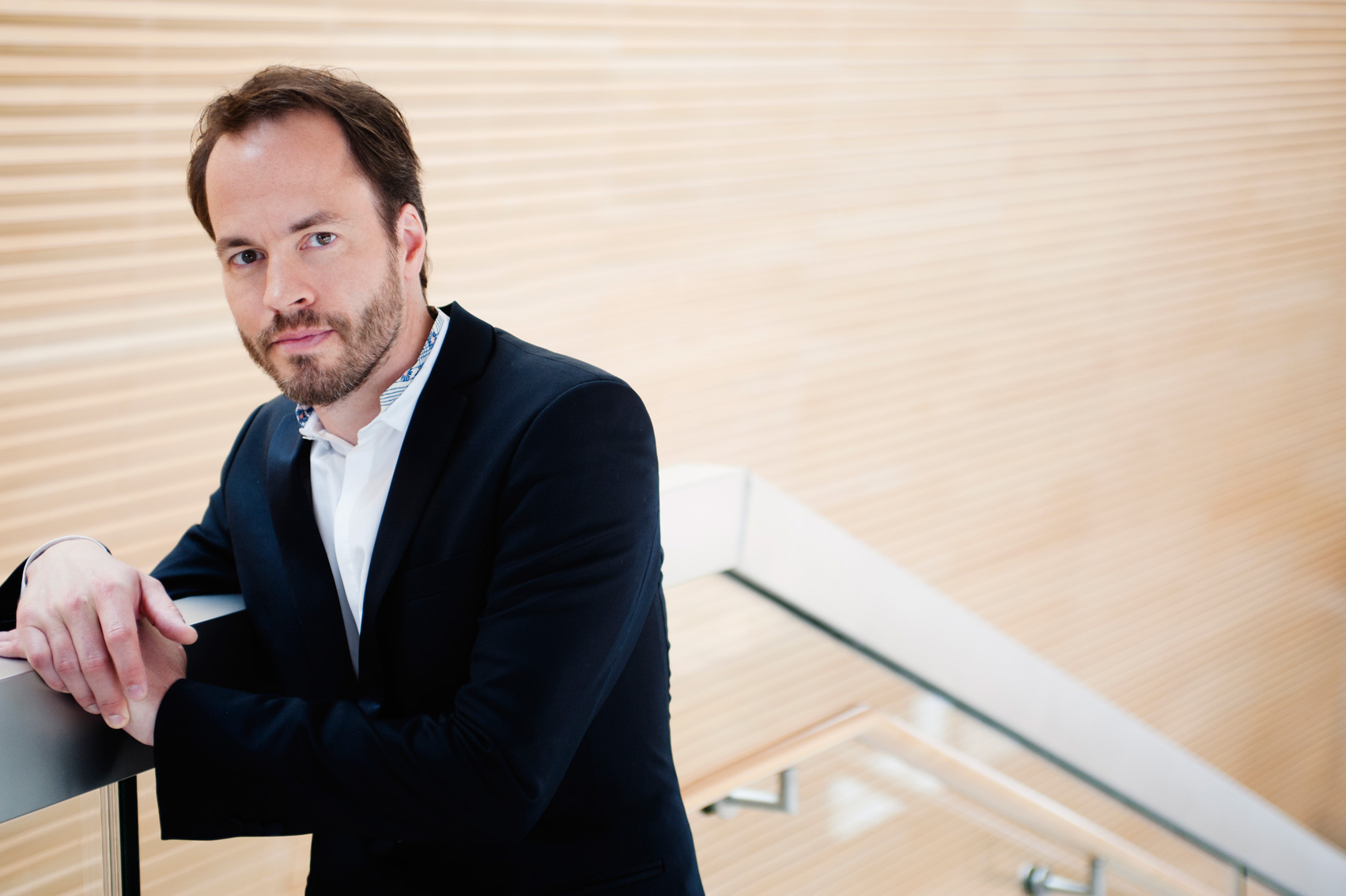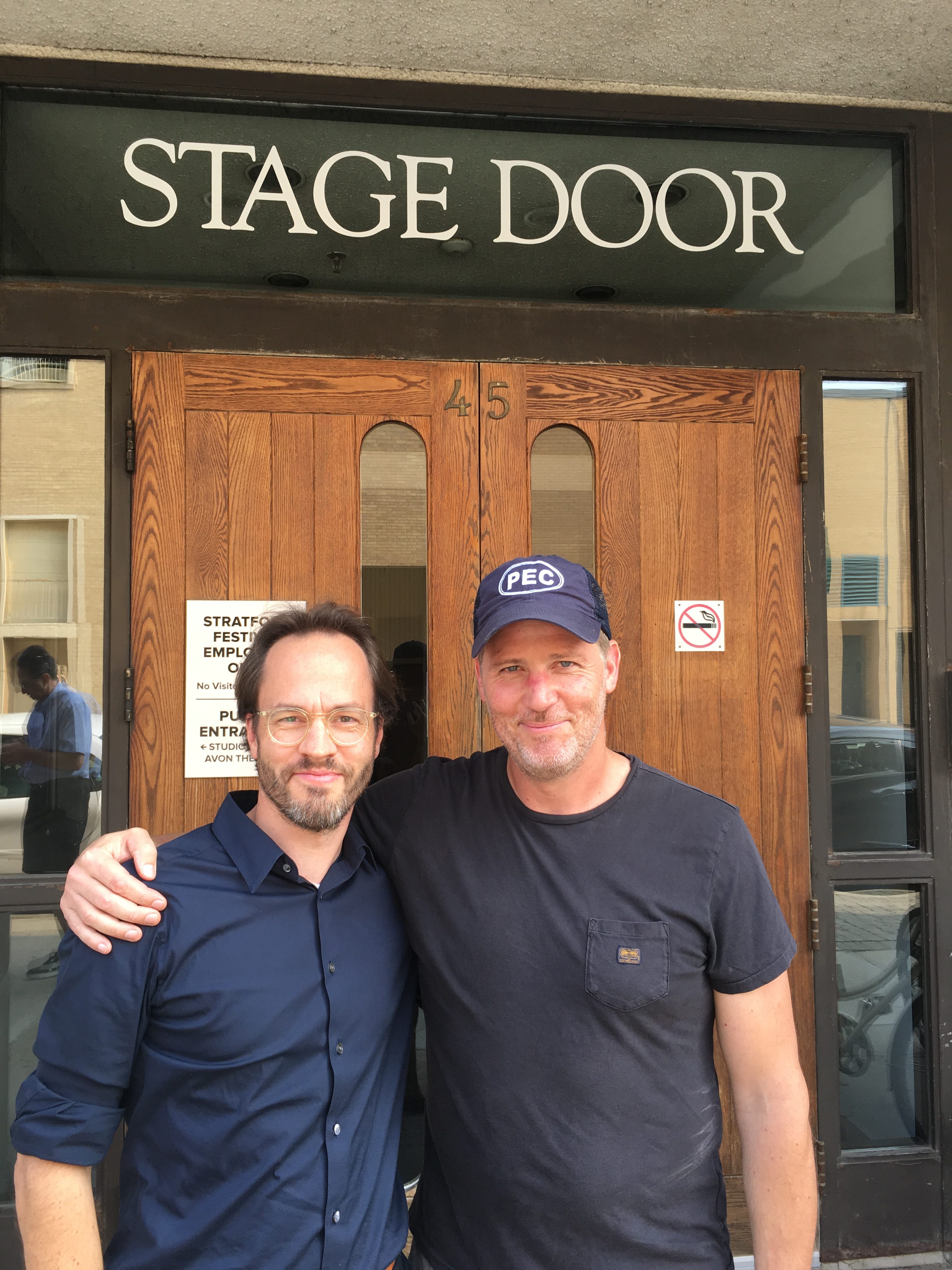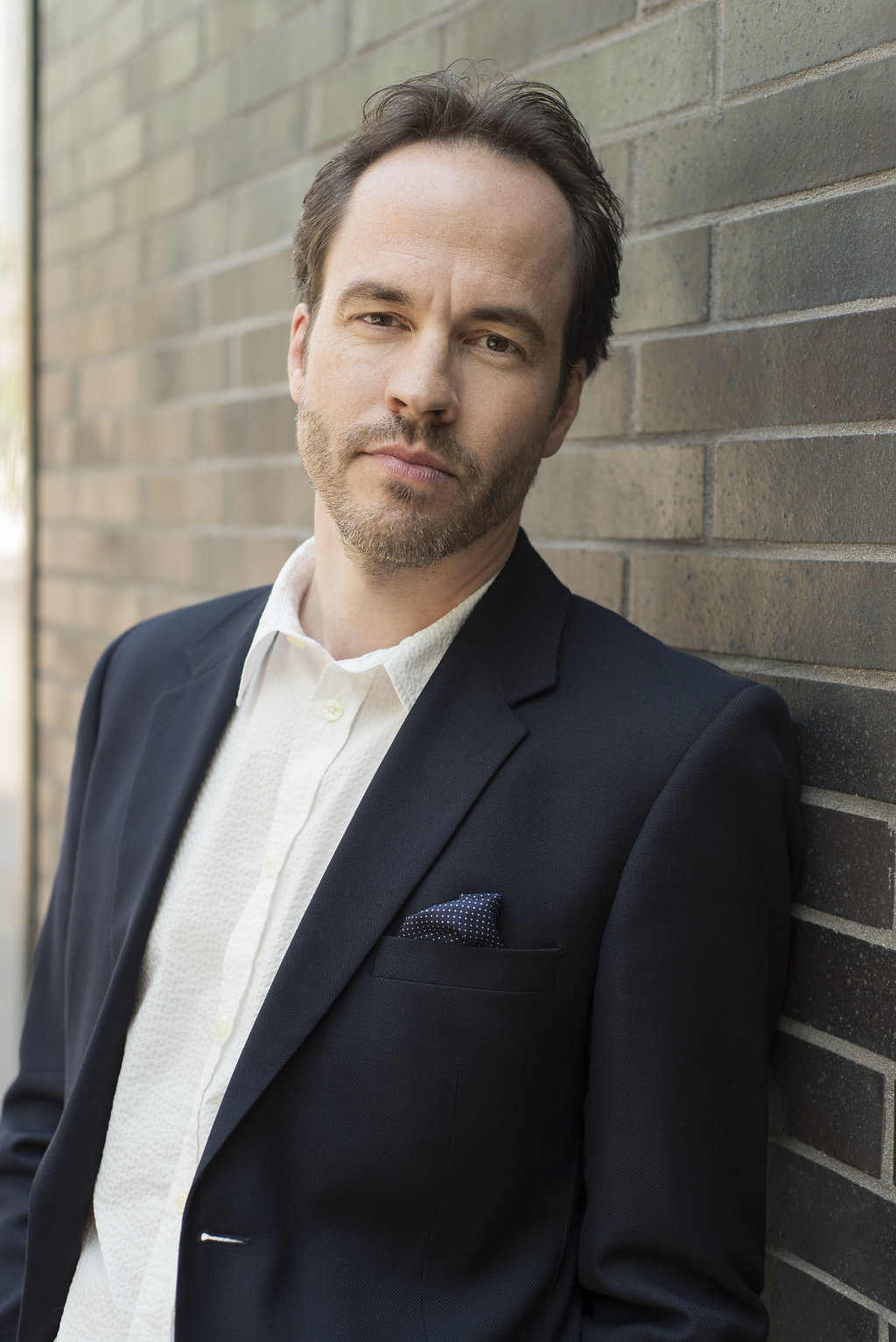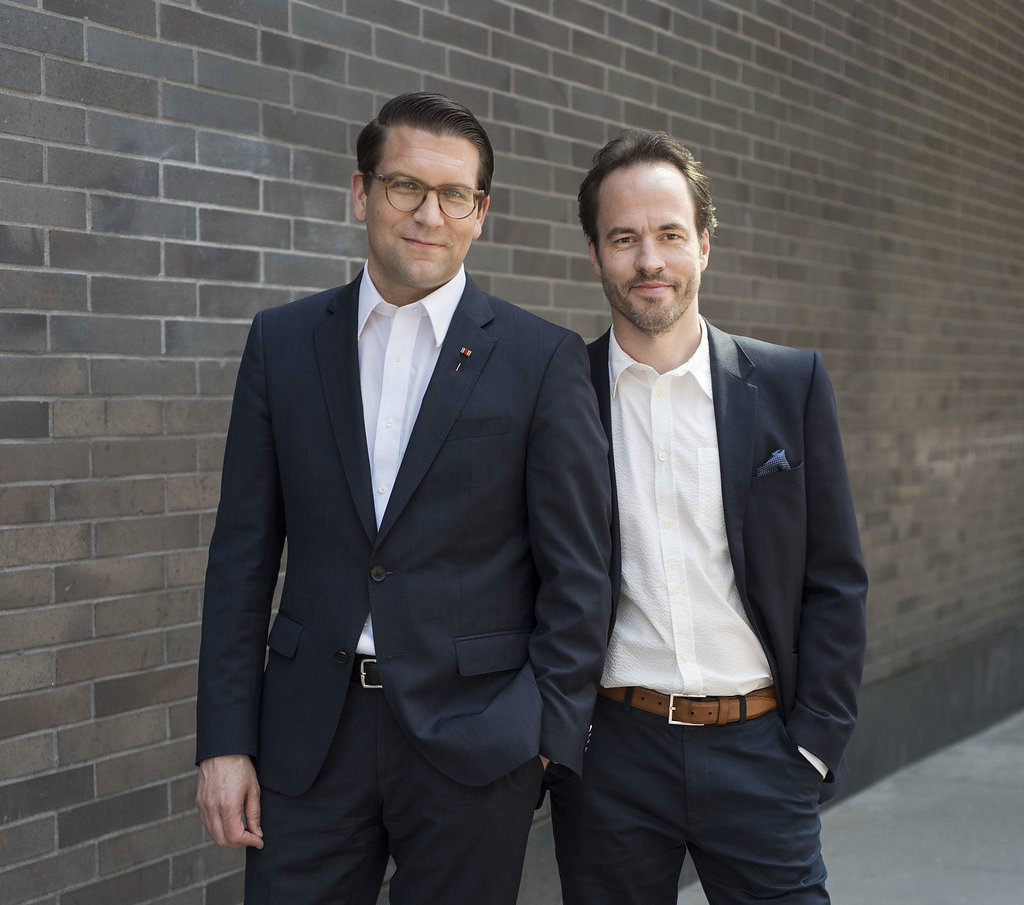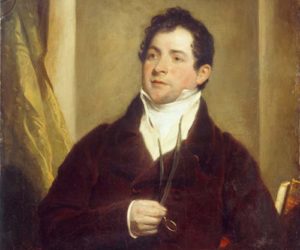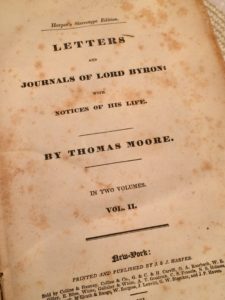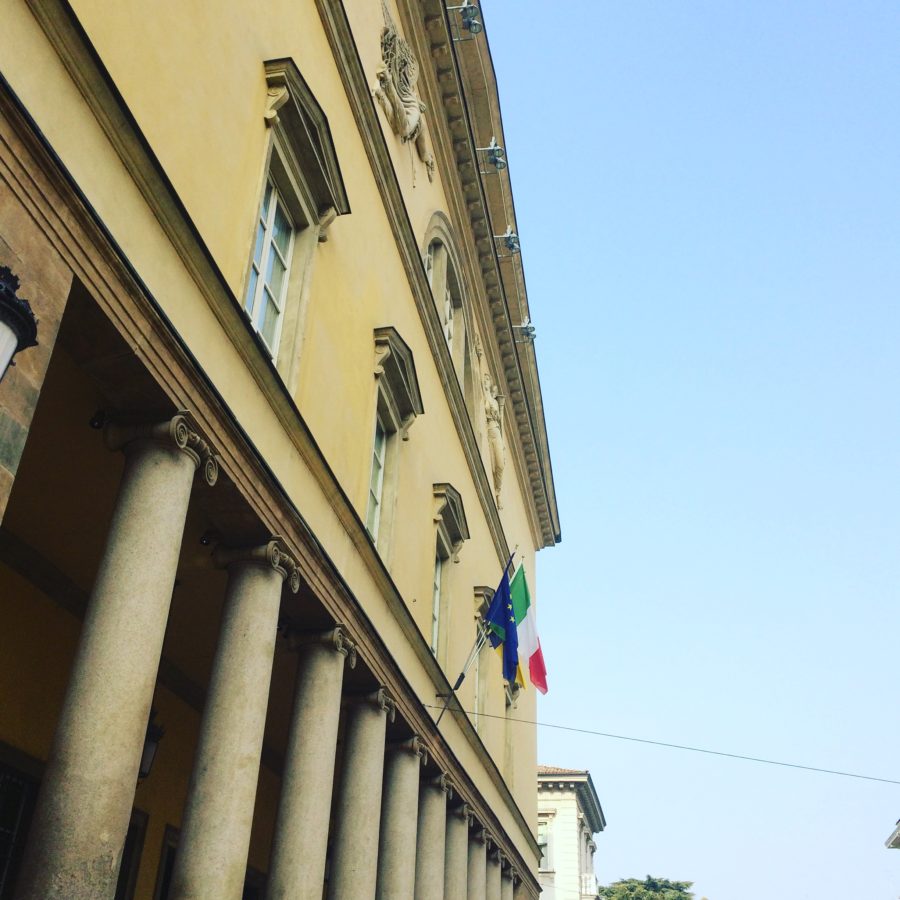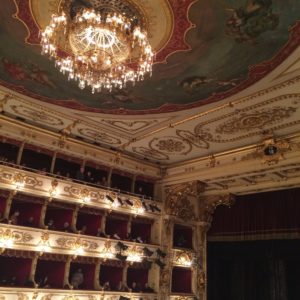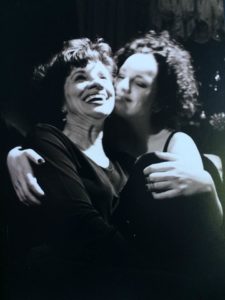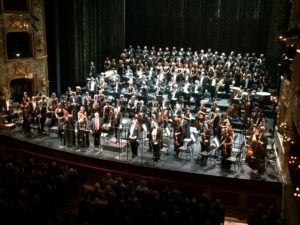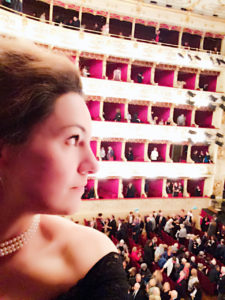One of the most moving episodes in the life of composer Dmitri Shostakovich (1906-1975) occurred in 1960 upon his first visit to the health resort of Gohrisch, a mountainside town located forty kilometres south-east of Dresden, where he had gone to write the music for Lev Armshtam’s film “Five Days, Five Nights”. The String Quartet No. 8 was famously composed instead, the sole piece he wrote outside the Soviet Union, done over three days in mid-July in the green, scenic spot near the River Elbe. Tortured by questions of identity, integrity, history, creativity and the tenuous links therein, having been heavily coerced into joining the Communist Party just prior, Shostakovich dedicated the work to victims of fascism and war, offering a mourning of the past, a dirge for the present, a worried sigh at the future. The composer returned to Gohrisch in summer 1972 following the premiere of his Symphony No. 15, where he visited with conductor Kurt Sanderling. Little could he have known that the site would host a celebrated festival bearing his name, featuring a range of his own works as well as those by his colleagues and contemporaries.
The International Shostakovich Days Gohrisch, founded in 2010 with the help of the Staatskapelle Dresden, has been a fount of musical exploration in the decades since its titular composer paid his visits. This year’s edition, which opened on Thursday (30 June), features the music of Shostakovich, of course, as well as that of Johann Sebastian Bach (1685-1750), Sofia Gubaidulina (b. 1931), Yuri Povolotsky (b. 1962), and Ukrainian composer Valentin Silvestrov (b. 1937), who is this year’s recipient of the International Shostakovich Prize. It’s fair to say that there are several spectres hanging over this year’s edition of the festival, but they are encapsulated in the figure of one person who is no longer present, but whose history, with both Shostakovich and Gohrisch, remains vital. Conductor Michail Jurowski, who passed away in March of this year, helped in the formation of the Festival and indeed led the Sächsische Staatskapelle in the concert barn (or the concert marquee) in Gohrisch from 2010 to 2013, and was awarded the third International Shostakovich Prize by the Shostakovich Gohrisch Foundation in 2012. An award-winning album of live festival recordings, released in 2017 (Berlin Classics), features the music of Arvo Pärt (1935), Mieczysław Weinberg (1919-1996), and Shostakovich, including the 1948 song cycle, From Jewish Folk Poetry, op. 79, which was composed following Shostakovich’s denunciation of the Zhdanov Decree; it had to wait until 1955 to receive its premiere performance. Jurowski championed such repressed works, making it something of his life’s mission to uncover and present the pieces which an insidious combination of politics, history, nationalistic fervour, and ideological intransigence forced longtime silence, ignorance, misperception upon. Born in Moscow in 1945 but with Ukrainian roots, the conductor was a champion of bringing rarely heard (and even more rarely recorded) works to the fore, as much out of a sense of civic duty as artistic curiosity, something that stayed with him and was inherited by his children, pianist/vocal coach Maria; conductors Vladimir, and Dmitri. It is a family rich in artistic lineage as much as intellectual probing, as concerned with present exploration as much embracing the past, and looking to the future not with a worried sigh, but a defiant, direct stare.
This year’s festival is dedicated to the memory of Michail Jurowski, whose memory will be most poignantly marked on Sunday (3 July), when youngest son Dmitri Jurowski leads the Saxon State Orchestra Dresden in a programme of works by Silvestrov and Shostakovich, including the world premieres of Michail Jurowski’s arrangement of the latter composer’s The Human Comedy op.37 (1934) for concert orchestra, and Dmitri Jurowski’s arrangement of Six Poems by Marina Tsvetaeva opera.143a (1973) with soprano Evelina Dobračeva and chamber orchestra. The transposition of voice feels somehow very right for an artist like Dmitri Jurowski, a cellist with an innate feeling for vocal expression, both human and instrumental. Over the past two decades, he has led over one hundred different opera productions for a range of celebrated houses, including Bayerische Staatsoper, Royal Opera House Covent Garden, Deutsche Oper Berlin, Opéra de Paris, Teatro Real Madrid, Gran Teatre del Liceu, Teatro La Fenice, Grand Théâtre Geneva, Lyric Opera Chicago, Israeli Opera Tel Aviv, and the Moscow Bolshoi Theatre. From 2011 to 2016 he was was General Music Director of the Flemish Opera Antwerp / Ghent. Jurowski’s history with opera does not obscure his deep sensitivity to (and with) orchestral scores – he has worked with the BBC Philharmonic Manchester, the Vienna Symphony Orchestra, the Bruckner Orchestra Linz, Tonkünstler Orchestra in Vienna, the Swedish Radio Symphony Orchestra Stockholm, the Hamburg Symphony Orchestra, the Dresden Philharmonic, the Hong Kong Philharmonic and Shanghai Philharmonic, to name a few. One of my own favourite recordings features the works of Hungarian composer Ernst von Dohnányi (1877–1960) with Jurowski leading the Sinfonieorchester Wuppertal (Cybele, 2018). With iron-hand-in-velvet-glove confidence, the conductor coaxes a luscious lyricism from the string section in Symphonic Minutes for orchestra op.36 (1933), a lyricism that is carried through into conversational woodwind exchange so lovingly conveyed in the piece’s second movement Rapsodia: Andante, and manifest in an energetic final Rondo: Presto, which is resplendent with busy strings and Jurowski’s repeated emphasis on cross-sectional conversation, allowing the drama which arises naturally from and within it to direct, turn a corner, then another; balance is thoughtfully maintained, but not at the expense of spirit; seriousness is equally present, but not without an equal dose of play.
Theatre, like music, would seem to be a part of the Jurowski family’s creative legacy, which, given the actual as well as artistic ties, only makes sense, given their long connection with many celebrated theatre artists, as well as Dmitri Shostakovich himself. The Human Comedy, composed for a 1934 stage adaptation of Balzac’s immense 19th century work by Russian writer Pavel Sukhotin (1884-1935), the mix of lightness and uncertainty of Balzac’s Paris, its surface charm hiding an anxious underbelly. The Six Poems of Marina Tsvetaeva possess their own form of drama, its power imparted via the fulsomeness of the poet’s vowels and consonants and the ways Shostakovich writes in, through, and around them. In listening to recordings, one is constantly confronted with the question of inner and outer ‘voices’, both vocal and instrumental, by experiences as much spoken as not; the third poem in the cycle (“Hamlet’s Dialogue With His Conscience”) with its ponderings on guilt, responsibility, notions of love and romance, and micro/macro ideas of place, speaks directly to the fourth (“The Poet And The Tsar”) and fifth (“No, The Drum Beat”) with its meditations on private-public faces and paradigms of power within various spheres of influence. The composer’s ever-present internal debates are reflected in this cycle, as much through the words of Marina Tsvetaeva (1892-1941) as through its chewy score, which was recorded by contralto Ortrun Wenkel under the baton of Bernard Haitink and the Concertgebouworkest, released by Decca in 1993. Placing the Six Poems cycle on the same bill as The Human Comedy, written four decades earlier, feels ballsy and somehow, important, particularly in light of ongoing debates related to the various uses and teachings of music, the role of canon, the expectations of audiences, whether music ought to have an “identity” (and if so, what it should be), as well as perceptions of Music As Entertainment (“Unterhaltsmusik”) and (or, more tiresomely, versus) Music As Serious Art (“ernste Musik”). Can Balzac and Tsvetaeva (and Silvestrov, and Shostakovich) share a creative universe? Well, why shouldn’t they? Moreover, how could they not?
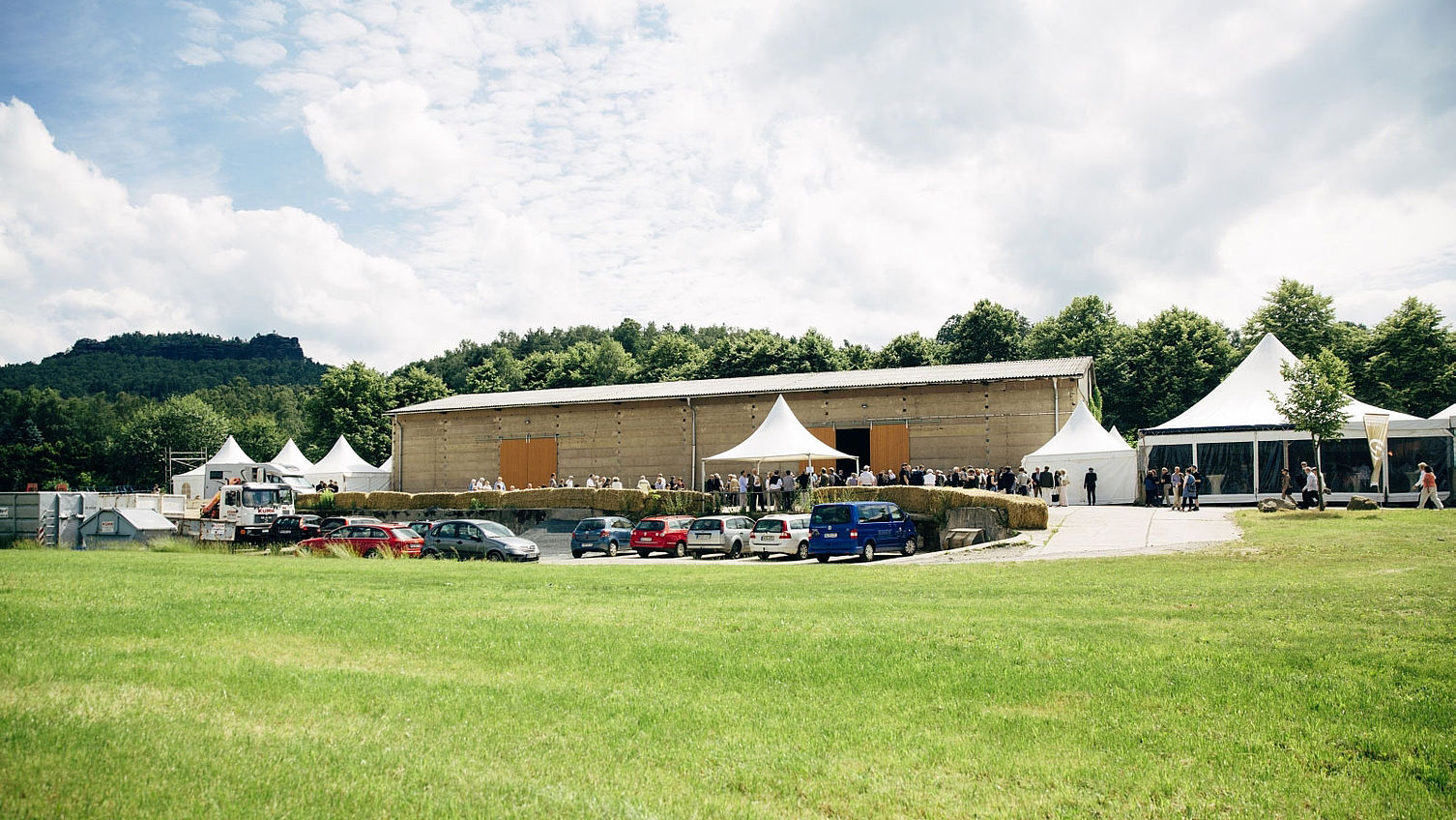
The concert barn at the International Shostakovich Days Gohrisch, 2016. Photo: Oliver Killig
The lives and feelings these artists explored in their respective works, the words and sounds they choose for describing those lives and sharing inner thoughts, ask for the very quality Shostakovich himself seemed quite interested in (consciously or not), the thing which is in short supply as much in life as in art, especially at the moment: empathy. I am not a believer in music magically melting barriers; specific contexts (socio-economic, racial, religious) must be taken into account whenever one experiences new sounds – contexts as much as atmospheres, inner and outer, controllable and not. These things exist. Sounds don’t magically ping them away. The ways in which one experiences the work of Silvestrov and Shostakovich (and/or writers and poets) are as relevant as one possessing a background in either’s work, or both, or none. These things are as much related to context as the environment in which one experiences such works, environments filled with all manner of human comedy, tragedy, mediocrity, diversion, novelty, affliction, agenda, and (one hopes) opportunities for contemplation. Ugly circumstances, harsh realities, human life in all its variance, must be recognized. Lived realities, and the inevitable lines they (mostly unconsciously) create do not magically melt; they simply are. It’s up to you to acknowledge them. Thus is art’s role as a vehicle of empathy vital; If we are unwilling to do the actual, real work of feeling another’s experience (much less acknowledging it as real), particularly those who have not had the privilege we have enjoyed (and perhaps do not even recognize), if we do not conscientiously direct imagination toward those foreign experiences which are beyond our direct experience and knowledge (and thus may be unpleasant, unfamiliar, dull, wearying), then what use is theatre, art, music, culture? Leo Tolstoy grappled with this very question in What Is Art? (1897):
The activity of art is based on the fact that a man, receiving through his sense of hearing or sight another man’s expression of feeling, is capable of experiencing the emotion which moved the man who expressed it. To take the simplest example; one man laughs, and another who hears becomes merry; or a man weeps, and another who hears feels sorrow. A man is excited or irritated, and another man seeing him comes to a similar state of mind. By his movements or by the sounds of his voice, a man expresses courage and determination or sadness and calmness, and this state of mind passes on to others. A man suffers, expressing his sufferings by groans and spasms, and this suffering transmits itself to other people; a man expresses his feeling of admiration, devotion, fear, respect, or love to certain objects, persons, or phenomena, and others are infected by the same feelings of admiration, devotion, fear, respect, or love to the same objects, persons, and phenomena. (trans. Aylmer Maude, 1899)
Painter Mark Rothko would later say that “The people who weep before my pictures are having the same religious experience I had when I painted them.” While such strength and visibility of reaction is personal, and may or may not be warranted (in the age of social media reaction can be more performative than authentic), that doesn’t cancel its validity within a real, lived framework. Empathy is needed in times of strife – in times of war, in times of pandemic, in times of division, separation, hostility, horror, anger, intransigence; it is work, indeed. Empathy is the energetic opposite of whataboutism that so heavily (alas) dominates contemporary discourse, and it is the hardest thing to keep alive, let alone cultivate, when algorithms inspire (and profit from) strong reaction, not slow thought. Consider slow thought, the festival in Gohrisch seems to whisper; slow thought is, very possibly, the very thing that best cultivates empathy. Somehow I can hear Silvestrov, Shostakovich, Balzac, Tsvetaeva, and Michail Jurowski whispering such a suggestion a bit more loudly right now.
And so, amidst such consideration, and one hopes, a related cultivation of empathy within creative realms, is a conversation in which family, culture, creation, grief, poetry, and that sticky, marvellous word “transposition” are all carefully, slowly considered. It was a true privilege and pleasure to speak with Dmitri Jurowski, and to hear, over the course of nearly an hour, his observations and ideas on music, writing, sound, performance, and his father’s influence. I remain grateful for his time and energy.
Why did you choose the Tsvetaeva song cycle – why arrange it it for chamber orchestra?
This work of Dmitri Shostakovich was one of my father’s favourite compositions. The whole concert is dedicated to him – actually the concert, and the whole festival, which he had planned one year ago, was one he was supposed to conduct. So when everything happened of course we decided not to make any changes in the programme – the only thing we did was put in the Tsvetaeva cycle. That was not foreseen; originally it was a Shostakovich violin concerto with the bigger orchestra, but since the pandemic is still going on, the orchestra actually asked to have a work in the programme which is for chamber, not a big group. That was the first thing they asked, and the (the song cycle) was one of his favourite pieces. During his funeral his recording of it was played many times during the day – so we decided to do this. Also there was one little change (to the work itself). It was written for mezzo soprano, but we wanted to do this together with (soprano) Evelina Dobračeva; I know her, we studied together, she was working more with my father than with me, and during all these years they made many projects together. He was like a teacher for her, and it was very important to have her on board for this project, so the only thing we had to do was change the tonalities for the cycle, because for a soprano it’s really too low. That was the only thing we did. The programme’s second half, The Human Comedy, will be a very special thing; it’s a world premiere. The work has been performed in the past of course, but it’ll be the first time the whole music, music for theatre, is done, the way it was played in Moscow in the theatre of Vakhtangov in 1934. That was the only year it was performed in the theatre, so that’s why we had to go and find it all; it was a real adventure to find that material. I spent a lot of time in different archives in Moscow, in the Vakhtangov Theatre, searching for it – I have good friend who is an actor who helped me, and it was a real thrill to find all the notes of the director from that time, his writing on when exactly which part of music was supposed to be played. Luckily they were very bureaucratic in the 1930s, so I could find everything I needed, but it’s still interesting. I’m really thrilled – again, yes, it will be the first time it’s performed.
The Human Comedy has been dismissed in the past as something Shostakovich simply did for the money, but having it in a chamber arrangement also means it forces a reconsideration…
You’re right, it’s becomes very transparent because of that. As to my opinion on its inception, the same thing you can say about Mozart: a lot of music and composers wrote for money. It was normal, they did it for a living, but even what Shostakovich did for the money was great. I think he had a lot of humour, sometimes very black humour, cynical humour, so even with the music he was writing for entertainment, it still becomes, somehow, very biting. And it’s interesting that the problems in the society they were facing in the 1920s and 1930s, I have the feeling many of these things we are facing again. Shostakovich was saying the music, there is actually a great quote of his, that music is the only thing which should survive any wars and any illnesses. I have the feeling now in the beginning of the 21st century we are back in the same situation somehow. We have to somehow prove that art, that music, has the power and the possibility to survive and bring, a little bit, people back together, that’s actually the only thing you can do in this really difficult situation.
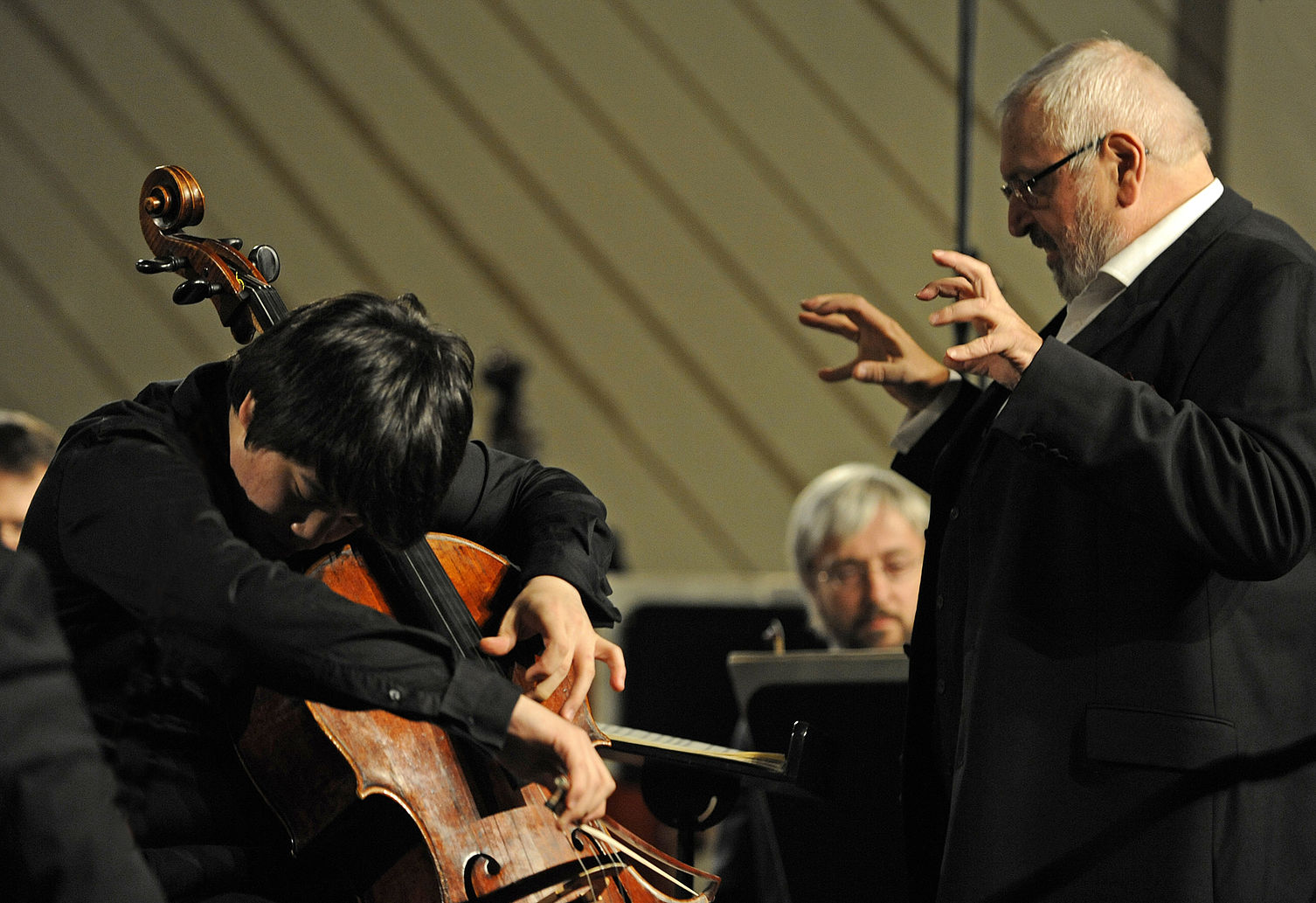
Conductor Michail Jurowski leads the Staatskapelle Dresden and cellist Isang Enders at the inaugural International Shostakovich Days Gohrisch in 2010. Photo: Matthias Creutziger
The context in which it is presented is important, your father’s history with the festival being very much part of that context. I’m curious what you think attracted him to this work. I recall him telling me years ago that conducting in America was like a dream for him – something that really wouldn’t be expressed now – and I can only theorize that such an experience, and the related feelings of curiosity and wonder, play into Balzac’s explorations about the variance of human experience, and Shostakovich’s also.
Yes, I’m thinking a lot in the last few months about his relationship to Shostakovich as well. It’s a strange thing, my father had such a close relationship to (the composer) in a human sense, as well as professionally. It was such that I always had the feeling I knew Shostakovich myself, even though it’s not possible. We spoke a lot about Shostakovich from my childhood and now since my father is no longer here I think about this energy he was creating, because you are right, I feel strongly his presence is still here. Even though I’m not able to ask him in real life for advice, I feel it, and it has been like that before when I was in touch with the music of Shostakovich – I was doing a lot of his music throughout my life and always feel an energetic support from him myself, although I didn’t know him. My father would speak about a genetic memory, and I think it’s valuable; he himself had strong genetic memory because of his father and grandfather. The period of The Human Comedy, or when we speak about Balzac and the 19th century, or the first thirty years of 20th century when this piece was written for theatre, those are all periods my father couldn’t know himself, but still a very strong connection existed. And I have the feeling it’s not an accident that history sometimes makes these repetitions – that is also a little bit related to this Human Comedy, to this exchange of tragedy and comedy, this continuance; it never stops.
So the idea of Shostakovich, as with other artists, is that there is no end of the story – there might be the end of somebody’s life, but the whole story will continue with other characters, like a play. So when you feel part of the huge theatrical play, that’s also what people like Shakespeare imagined, then you… have to also create a distance to everything, which is not bad, especially in our days, because it is very difficult to continue and to go on when you are facing really very strong negative things, like war, like illness –so you need a distance to all that.
But you also need immediacy, a sense of relationship to what you watch, what you listen to, the people you spend time with, the food you eat, whatever you consume in whatever forms, and I feel Shostakovich really understood that – your father understood that also. That sense of connection is powerfully manifest in chamber arrangements. How, to your mind, does changing the tonality for voice, and within a chamber configuration, affect understandings of Tsvetaeva’s poetry, and Shostakovich’s music?
The word “transposition” is a great word; it has so much inside of it! I am always curious why we call it, in musical language, a transposition from one tonality or modulation to another one – of course it will be another piece, so I am very curious how this particular piece will sound. Every tonality has a colour; every tonality has a character, so when you change tonalities you change a lot of things – that’s clear. But we have to take into account that every piece of music we hear, from Baroque times or from Classical times, that all the tonalities – all the G Minors and whatnot – from that period are not the same as now because of the tuning, so when you start to play this music in the way it was done at the time it was written, then you understand it’s really another feeling. But it doesn’t mean you have to do that – you can play it also in the modern tonalities, with modern instruments. The times are changing and the acoustics are changing. What I can say about the Tsvetaeva work is, I have a feeling for now anyway, that the music itself remains dark, the cycles of Shostakovich remain dark, even if we put everything one tone higher, but the transference of the text now means it might be even stronger because of that. When you take the very high voices with the very high notes you can barely understand them.
For example, I’m talking now a little bit lower, because there is also microphone so I don’t have to raise my voice so much, but if I’m talking to somebody, the minute I speak a little bit higher, the attention, the whole energy, changes – it’s like a string pulled tighter, the whole connection is stronger, right at this moment. It’s not better or worse, it’s just a different kind of energy, so I’m really curious how (the song cycle) will be, but it’s my feeling that the darkness becomes more transparent there. Also the number of musicians onstage is really not big, you can do it with a bigger group, but for me, I’m not a pianist, I’m a cellist – I was doing a lot of chamber music and a lot of soloistic music, especially, so it’s a different feeling. My best memories were the cycles of Shostakovich with the Blok poetry which is written for piano trio and voice, and there were movements where you had just cello and voice together, and this type of intimacy where you have this one voice and one instrument, for me is something I always try to aim for even when I have a big symphony to perform. I’m always searching for these intimate moments when you can really produce this kind of tension. It’s like when you have a crowd of people and everyone is talking and then suddenly everyone is silent and you have two people looking at each and talking to each other – that’s powerful. This silence is extremely strong. And for somebody like Tsvetaeva, her work really asks for silence, even if she’s screaming or crying, it’s not for mainstream television, let’s say.
Some translations capture that relationship between silence and music better than others; the repetitions in her writing are staccato in some ways – so deliberate, so rhythmic, so musical.
They really are…
I wonder if people miss that musicality because of the drama, but she’s asking as much for a subconscious understanding through that musicality as a conscious one through the words themselves, and I think Shostakovich captures both in this song cycle…
Yes that’s true!
.. now I wanted to ask you, these chamber sounds, vocal sounds, ensemble sounds – the ways you perceive sound, and write, conduct, and transpose, are they informed by the cello?
Yes, you’re right; they are. I have to say, my biggest learning, one of my best schooling in working with singers was by playing cello, because it is the instrument which has the biggest connection to the human voice. It includes the whole range of all possible sounds, from bass to soprano, in one instrument. I remember I had an ensemble, a chamber group, we performed with a baritone, me as a cellist, and a pianist, we were doing many arrangements, not only opera arias but we were also playing, lots of duets for example, of Schumann and Schubert, where one voice was played by cello and one was singing, and there was always a moment where you consciously lost this – like “where is the voice and where is the cello?” This is also what Shostakovich really did great, his understanding of sounds, of the voice as an instrument, was really central. So when vocalists deal with Shostakovich, they have to really think like an instrument, especially for performing his music, it’s a great need. Of course it helps when you have, generally, great poetry. In Italian opera you sometimes have a kind of text which is, I don’t want to say it’s useless, but of course you have it sometimes where the words are really not important but the vocal line is, and that’s something else – but when you deal with Russian or German or also sometimes Italian, but another type of style, like something from Petrarch or Dante, something where the text is leading, it’s obvious how the music has to be.
That’s why it’s so great with Shostakovich: the music has to be leading and carrying at the same time. And especially when you see the amazing last movement of the cycle, when it’s about Akhmatova, so Tsvetaeva is writing about Akhmatova, through Shostakovich’s musical line, it’s just… you have so many incredible people in one little musical bar… it’s immense. For a conductor, a musician, a listener, it doesn’t matter – you have to show it to others, you don’t have to show yourself, you don’t have to pretend your art is higher or mightier than anything those people were creating. It’s not about you. That’s why it’s so important to be a little bit aside, and to be a little bit under this, let’s say, sound, still controlling everything, still producing your language, and with your capacities, but! This is too fragile, all this music and chamber music generally is very fragile, and in combination with poetry of Tsvetaeva and music of Shostakovich, you can’t just throw it somewhere; you have to touch it as if it’s crystal. That’s the best possibility, for everyone … to hear, to listen, to inhale it. That’s why I am always looking forward, so much, to all these sorts of concerts, but energetically they take… it’s a much bigger challenge than a huge symphony or opera. It’s sometimes much more difficult to produce something like that.
Your use of the word “fragility” brings Silvestrov’s work to mind. He is on the programme with Shostakovich on Sunday. How do you see the connection?
The interesting thing is I performed Silvestrov in my time as a cellist many years ago. His work is always very much related to beauty, and it’s very honest music; he was never trying to pretend that he was the big modernist of the 20th century. Somebody like Arvo Pärt is also not a modernist but is very much about the spirit of music. I know Pärt very well, we spoke a lot about music, and you can feel how important the spiritual energy has always been for him in his life, and not only in his music – but with Silvestrov, it’s different; it’s so simple with him. Of course now the situation has changed. He’s not the only existing Ukrainian composer but he’s the big one being performed. He’s the oldest, for sure – luckily it’s still alive, and he will be present on Sunday. For musicians performing his music now, you can imagine it’s even more a responsibility now than it was twenty years ago, and still, I am absolutely sure it is so important for him as a composer, and for us as interpreters, to play music, to make music, to show the artistic side of Silvestrov. Shostakovich was much more political than Silvestrov, of course, they were much different times in which Shostakovich lived. But he was somebody who was a fighter; he was always fighting crises. Somehow, luckily for him, he didn’t need to invent anything; it was already present in reality. Shostakovich generally works very well in combination with other composers of the Soviet Union of the 20th century, but with a little bit different way of energy.
It’s interesting that Silvestrov is being honoured at the festival this year, and that his work is on this programme with the Shostakovich chamber arrangements.
Especially the Tsvetaeva work, which comes directly after the Silvestrov piece. His work is chamber music, and it’s about feeling, about atmosphere. With Shostakovich there is a script, always, there is a clear storyline, even if it’s not… even if you play Shostakovich’s chamber music without words, still, yes, he is the narrator of the story. Silvestrov, it was always my feeling, he’s a witness of atmosphere, and he’s sharing that atmosphere. So that’s why I think there is a good link between them.
He’s an observer of atmosphere and putting it out there has its own kind of interpretation of script…
Yes.
… it’s one that is being written as it’s being played, and it changes all the time. That’s what I hear in Silvestrov, not a narrative but a sort of Beckett play where there’s a very pervasive mood that is inherent to overall understanding. I wonder if that’s another connection with the work of Shostakovich, that development of feeling with inner and outer worlds.
That’s about performing, though. Performing must include a script – whatever you are doing, it must have a certain sense. Sometimes you have a kind of clear help from the composer who is writing everything already, so you have just to comment; in other cases you have to create a script for yourself, and with the music of Silvestrov it’s not difficult. Especially in the 21st century – and the 20th they had it as well – you have movies, when you know how a movie can work, and you know what the perfect music is for it. That’s essentially what Shostakovich said about Silvestrov – they knew each other of course. Silvestrov is 84 years old now, he knew Shostakovich, who was always very polite to his colleagues, and had a lot of respect for people like Schnittke and Kancheli. I remember hearing from the widow of Shostakovich, from Irina, I spoke to her two weeks ago about this concert, and she said, “Yes, he always respected Silvestrov, he said (Silvestrov’s) music is amazing especially when somebody knows how to paint.” So somehow it’s an interesting way to describe his music.
So if Shostakovich is Kandinsky, Silvestrov is Mark Rothko?
Good point, yes.
Experiencing all these “paintings” in a live setting on Sunday, one which is so historically loaded, and especially with you doing it, feels profound, though it must be a little daunting for you?
What do you mean?
Parental figures who give their children deep connections to art can cast large shadows, as my own mother did; after she passed and I had to go do things in public with some kind of connection to her, it was like walking into a room naked; I learned that one has to draw a line between what one gives the public and saves for one’s self.
Well, you know Catherine, when I chose this profession and started to conduct, having my father and my brother, these important and successful conductors already, I knew I would be kind of naked my entire life. So that’s nothing new to me. I’ve done this job for seventeen years now. The only thing which is kind of changing for myself, not for other people, is that I feel my… responsibility, first of all, for this profession since he passed away, is now bigger than it was before. Because now I have not only to be just to be on a certain professional level, we all have to achieve this for all our lives, but I have also to respect and show respect to his memory, you know? And respect to memory, responsibility for somebody who is not there anymore, physically at least, for me it’s now an experience to say that somehow it’s even bigger, but it gives you more energy.
I remember the day he passed away, on the 19th of March, this day I was in my theatre in Novosibirsk and the next day I had Traviata to conduct, not the easiest opera to do, especially… but the thing is… whatever piece I would conduct, whatever I would take, my father had such a huge repertoire and had done so many things in his life, so there is always a kind of link to him. And I have to be honest, I didn’t have so much energy to go onstage of course at that time, but I did it, because I knew he would really appreciate it at this precise moment. And I mean I always have, it’s one of the main reasons I do this profession, is that I have very special feelings for singers – that’s the most fragile and most sensitive thing because you have an instrument here, inside. I always trying to treat the singers with a necessary sensitivity, but now I have the feeling it’s even more, because I know they have to produce out their emotions they have inside, you know? So this experience is something, and it’s the thing that will stay with me forever. I know of course there is always a period of grief you have to go through and some of your parents or the people close to you die, and somehow it’s over, you’re over this hill, and you still have the memories but there’s a distance…
… I can tell you the grief comes back, but in a different form.
Yes, I have the feeling when we talk about him, it will never be completely distant to me. We are doing the same profession and my life and profession are the same thing. There will be, always, a strong connection, and probably through the years, it will become even stronger.

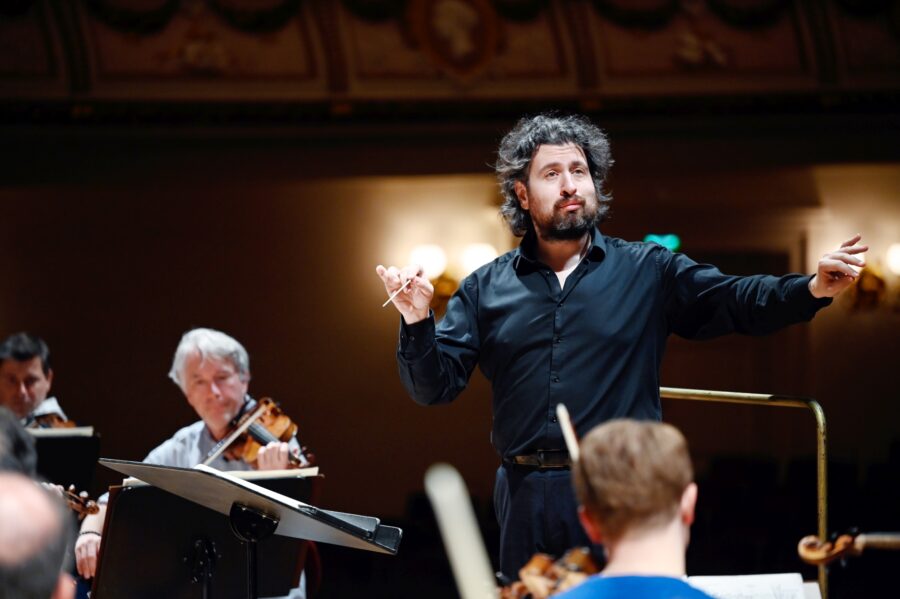
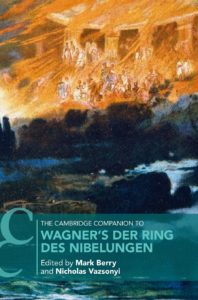 The Cambridge Companion to Wagner’s Der Ring des Nibelungen (Cambridge University Press, 2020), released late last year, is an insightful, highly readable collection of essays edited by Mark Berry and Nicholas Vazsonyi, two distinguished Wagner scholars and dedicated Wagner fans, which explores the tetralogy from a variety of illuminating and diverse angles. With related printed music sections, the book is divided into smart sections (Myth, Aesthetics, Interpretations, Impact) which offer solid musicological analyses which integrate composer anecdotes and quotes, cultural reference points, and contextual history. Its editors also provide thoughtful explorations and an array of viewpoints. Co-editor Mark Berry is Reader in Music History at Royal Holloway, University of London, and has authored a number of books on music, including After Wagner: Histories of Modernist Music Drama from “Parsifal” to Nono (Boydell Press, 2014) and a biography of Arnold Schoenberg (Reaktion, 2019); he is the Recipient of two music prizes (the Prince Consort and the Seeley Medal, for his work on Wagner) and keeps
The Cambridge Companion to Wagner’s Der Ring des Nibelungen (Cambridge University Press, 2020), released late last year, is an insightful, highly readable collection of essays edited by Mark Berry and Nicholas Vazsonyi, two distinguished Wagner scholars and dedicated Wagner fans, which explores the tetralogy from a variety of illuminating and diverse angles. With related printed music sections, the book is divided into smart sections (Myth, Aesthetics, Interpretations, Impact) which offer solid musicological analyses which integrate composer anecdotes and quotes, cultural reference points, and contextual history. Its editors also provide thoughtful explorations and an array of viewpoints. Co-editor Mark Berry is Reader in Music History at Royal Holloway, University of London, and has authored a number of books on music, including After Wagner: Histories of Modernist Music Drama from “Parsifal” to Nono (Boydell Press, 2014) and a biography of Arnold Schoenberg (Reaktion, 2019); he is the Recipient of two music prizes (the Prince Consort and the Seeley Medal, for his work on Wagner) and keeps 